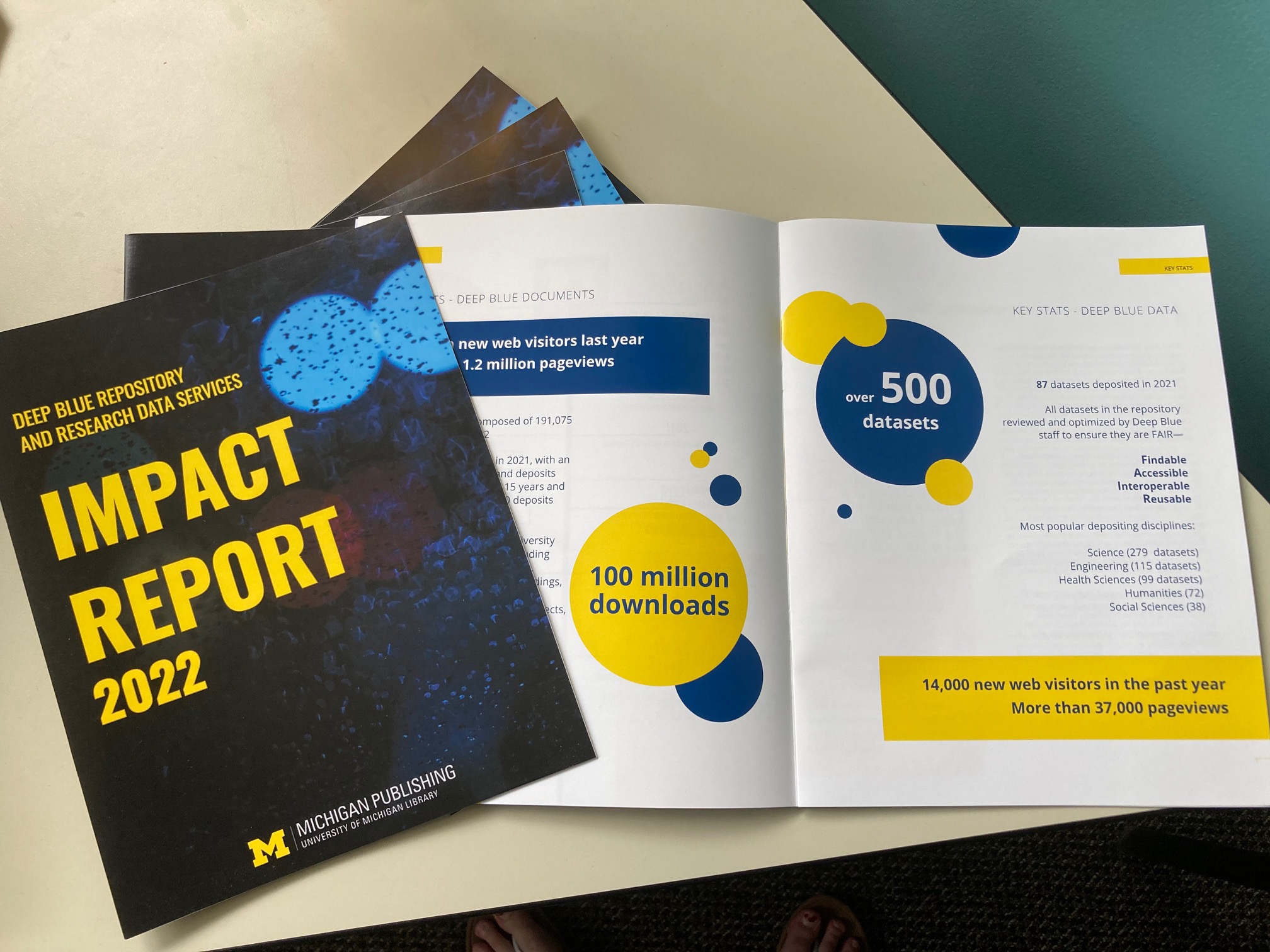Faculty Public Engagement
Deep Blue ensures global use of U-M publications and research data
The latest Deep Blue impact report provides an overview of the impact of the repository and research data services.

Since Deep Blue Repository and Research Data Services launched under the University of Michigan Library in 2006, it has grown to be a nucleus for the preservation and promotion of the work of University of Michigan scholars. The Deep Blue impact report provides an update on this important platform.
Deep Blue Documents began as a simple dissertation deposit venue and has grown to house over 140,000 pieces of scholarship, including articles, chapters, conference presentations, and other works created by U-M community members. Most of the authors who choose to deposit their research with Deep Blue decide to make that content freely viewable and searchable to anyone regardless of institutional affiliation.
Deep Blue Data includes close to 500 data sets developed by or used in the support of research activities at the University of Michigan. As a founding member of the multi-institutional Data Curation Network, Deep Blue Data and the University of Michigan have helped to create a network of specialists dedicated to advancing open research and to ensuring data can be reused and understood.
The 2022 Deep Blue Impact Report shares how both Deep Blue Documents and Deep Blue Data have influenced both the University of Michigan as well as the broader scholarly landscape. The stories contained here highlight Deep Blue’s role in advancing the goals of academic innovation, equity, and increased faculty discourse with the public.
In its first decade and a half, Deep Blue Repository and Research Data Services has seen over 100 million downloads of its documents and datasets. We hope the impact that Deep Blue has had on the world inspires you just as it inspires us, and that you join us in making Deep Blue’s journey to its next 100 million downloads even more successful than its first.
Visit deepblue.lib.umich.edu to learn more.